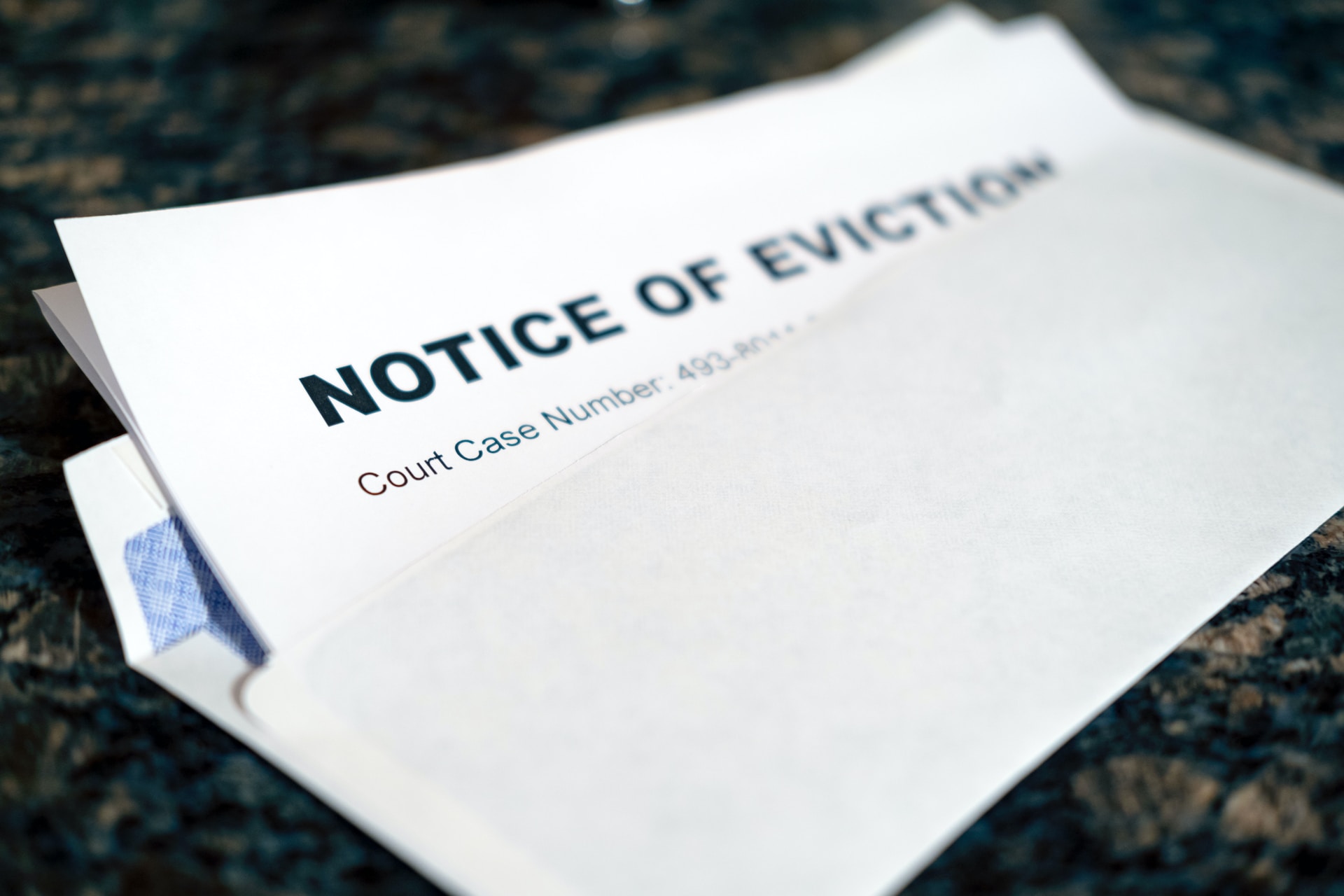As a renter, you may have heard of the term “eviction” before. Eviction is a legal process through which a landlord or property owner can remove a tenant from their property. This process can be stressful and overwhelming, especially for renters who are unfamiliar with the process.
In this blog post, we will provide an overview of how evictions work and what renters need to know to protect themselves in the event of an eviction. Understanding the eviction process and your rights as a tenant can help you prepare for potential issues and minimize the impact of an eviction on your life.
It’s essential to know how evictions work as a renter because it’s a situation that can happen to anyone. If you’re behind on rent payments, if there’s a change in your lease agreement, or if your landlord wants to sell the property, you may be at risk of eviction. Knowing your legal rights and obligations as a tenant is crucial to protect yourself and your family from the consequences of an eviction.
Table of Contents
- Understanding Evictions
- The Eviction Process
- Tenant Rights during Eviction
- What Renters Need to Know
- Final thoughts
Understanding Evictions
Eviction is a legal process through which a landlord or property owner can remove a tenant from their property. It’s important to note that eviction is not the same as termination of a lease agreement, as a lease agreement can expire without eviction proceedings. Eviction is a serious matter that can affect a renter’s ability to secure housing in the future.
Reasons for Eviction
There are several reasons why a landlord or property owner might seek to evict a tenant. Some common reasons include:
- Nonpayment of rent: If a tenant fails to pay rent, the landlord may seek eviction.
- Violation of lease agreement: If a tenant violates the terms of their lease agreement, such as having unauthorized pets or subletting without permission, the landlord may seek eviction.
- Property damage: If a tenant causes damage to the property beyond normal wear and tear, the landlord may seek eviction.
- Illegal activities: If a tenant engages in illegal activities on the property, such as drug use or sales, the landlord may seek eviction.
Types of Evictions
There are two main types of evictions: formal evictions and informal evictions.
- Formal Evictions: Formal evictions involve a legal process that must be followed by the landlord or property owner. This process typically involves giving the tenant written notice of the eviction, a court hearing, and a court order authorizing the eviction.
- Informal Evictions: Informal evictions, also known as “self-help evictions,” occur when a landlord or property owner forces a tenant to leave the property without following the legal process. This can include changing the locks, shutting off utilities, or physically removing the tenant’s belongings.
It’s important for renters to understand the different types of evictions and the legal processes involved, as it can impact their rights and protections as tenants. In the next section, we’ll explore the eviction process in more detail.
The Eviction Process
The eviction process can be stressful and overwhelming for renters, but understanding the steps involved can help them prepare and protect themselves. Here are the typical steps involved in the eviction process:
- Notice of eviction: The eviction process usually begins with a notice from the landlord or property owner. This notice should be in writing and provide a specific reason for the eviction, such as nonpayment of rent or violation of the lease agreement.
- Demand for compliance or possession: If the tenant doesn’t comply with the terms of the notice, the landlord or property owner may issue a demand for compliance or possession. This document gives the tenant a specific amount of time to comply with the notice or vacate the property.
- Filing a complaint: If the tenant doesn’t comply with the demand for compliance or possession, the landlord or property owner can file a complaint in court. The complaint will state the reason for the eviction and request a hearing.
- Court hearing: The court will schedule a hearing to determine whether the eviction should be granted. The tenant will have the opportunity to present their case and dispute the eviction.
- Court order: If the court decides in favor of the landlord or property owner, they will issue a court order authorizing the eviction. The court order will provide a specific date and time for the tenant to vacate the property.
- Eviction: If the tenant doesn’t vacate the property by the date specified in the court order, the landlord or property owner can request assistance from law enforcement to physically remove the tenant and their belongings from the property.
Timeline of an Eviction
The timeline of an eviction can vary depending on the state and the specific circumstances of the case. Generally, the eviction process can take several weeks to several months from the initial notice to the actual eviction.
Legal Procedures for Eviction
It’s important to note that landlords and property owners must follow specific legal procedures when seeking eviction. This includes providing written notice of the eviction, following specific timelines, and obtaining a court order authorizing the eviction. If a landlord or property owner violates these legal procedures, the tenant may have legal options to dispute the eviction.
Tenant Rights during Eviction
Tenants have legal rights and protections during the eviction process. Understanding these rights can help renters protect themselves and dispute unfair or illegal evictions.
Notice Requirements
Landlords and property owners must provide tenants with written notice of the eviction and specific reasons for the eviction. The notice must be in writing and include the amount of time the tenant has to comply with the eviction or vacate the property. The notice requirements vary by state, so renters should check their state’s laws for specific details.
Tenant’s Right to Dispute the Eviction
Tenants have the right to dispute the eviction and present their case in court. The court will consider the evidence presented by both the landlord and the tenant before making a decision. If the court decides in favor of the tenant, the eviction may be dismissed, or the tenant may be given additional time to comply with the notice.
Tenant’s Right to Legal Representation
Tenants have the right to legal representation during the eviction process. A lawyer can help tenants understand their legal rights, dispute the eviction, and negotiate with the landlord or property owner. If a tenant cannot afford a lawyer, they may be able to obtain free legal assistance through local legal aid organizations or tenant advocacy groups.
It’s important for renters to know their rights and protections during the eviction process. If a landlord or property owner violates a tenant’s rights or fails to follow legal procedures, the tenant may have legal options to dispute the eviction. In the next section, we’ll explore some tips for renters facing eviction.
What Renters Need to Know
Facing an eviction can be a stressful and difficult experience for renters. However, there are steps that renters can take to prepare themselves and protect their rights.
How to Prepare for a Possible Eviction
Renters should be aware of their financial situation and take steps to prioritize their expenses, such as paying rent and utilities on time. It’s also a good idea for renters to save money and create an emergency fund in case of unexpected expenses or a loss of income.
Renters should also review their lease agreement and be familiar with their rights and responsibilities as tenants. This can include understanding the notice requirements for eviction and any penalties for breaking the lease.
How to Respond to an Eviction Notice
If a renter receives an eviction notice, they should respond promptly and in writing. Renters should address the specific reasons for the eviction and include any evidence or documentation that disputes the landlord’s claims. Renters may also want to consult with a lawyer or tenant advocacy group for assistance in responding to the eviction notice.
Available Resources and Support for Renters Facing Eviction
Renters facing eviction may have access to resources and support to help them during the process. This can include legal aid organizations, tenant advocacy groups, and government assistance programs.
Renters can also explore options for negotiating with their landlord or property owner, such as setting up a payment plan or requesting additional time to comply with the eviction notice.
It’s important for renters to know that they have options and resources available to them during the eviction process. By taking steps to prepare themselves, responding promptly to eviction notices, and seeking assistance when needed, renters can protect their rights and potentially avoid eviction.
Final thoughts
Evictions can be a difficult and stressful experience for renters. However, understanding the eviction process and knowing your rights as a tenant can help you protect yourself and potentially avoid eviction. If you are facing eviction, it’s essential to take action and seek assistance if needed.
By understanding the eviction process and your legal rights as a tenant, you can protect yourself and potentially avoid eviction. Remember that you are not alone, and there are resources and support available to help you during this challenging time.

Meds is an attorney currently residing on the East Coast, where he practices law. While his primary focus lies in criminal law, he also has experience in family and personal injury law. His legal background enables him to navigate a variety of legal challenges and provide comprehensive assistance to his clients.





